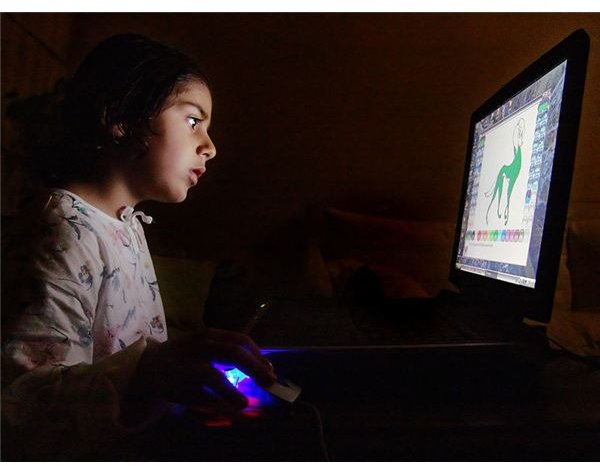Keep Children Safe with 5 Basic Internet Rules
The Urgency to Protect Kids When Online
It is tempting for parents to leave cyber training to schools. After all, if the schools require the research for the homework – which takes a computer to complete – it stands to reason that the educators should also fortify the children for what they might encounter. Yet, just like any other aspect of modern-day parenting, this is a teaching opportunity mom and dad cannot afford to outsource.
Sobering statistics provided by ‘Enough Is Enough’ show that there is a distasteful underbelly of Internet activity, which requires parental understanding and guided rule-setting. For example, did you know that:
- 79 percent of children, who are involuntarily exposed to pornography, have the experience at home
- Only five percent of sexual predators pretended to be youngsters while prowling online; the rest were upfront about their ages and intentions
- Even though 48 percent of K-1st graders said they saw something online that made them feel bad, one in four did not report the incident to an adult
- 52 percent of online teens have shared personal data with an online friend whom they do not know in real life; the vast majority of them are girls
- Eight percent of teens post their personal cell phone number online for all to see
It is clear that a sound network of online safety rules is an urgent must for today’s technophile youth.
Basic Framework of Rules
Parents know the children in their care best. It stands to reason that the rules you devise have to be crafted with your youngster’s temperament, risk-taking behavior and overall common sense in mind. That being said, consider these five steps to be springboards or conversation starters.
1. Keep inappropriate content out of the Internet. This content refers to the risqué picture your preteen daughter might upload to her blog or social networking profile. It also refers to the pictures and texts she invites into the family room via the Internet connection.
Conversation starter: Discuss how uploaded photos and documents can stick around forever and harm the youngster’s future chances of building a good online reputation.
2. Observe the Golden Rule while online. The child must learn to treat others in the way he or she would like to be treated, i.e. with respect, kindness and patience.
Conversation starter: Help the youngster to identify bullying behavior and ensure that he or she knows not to be a cyberbully. Remind them to report bullying by others right away.
3. Safeguard privacy. Let kids and preteens identify all the data that should be kept private and not be shared with online contacts. Examples include their home address, their full name and the birth date – and of course where they go to school or work out.
Conversation starter: Role-play how third parties might try to get this information from the kids. For example, an online contact might encourage a child to share a password so the contact can access the account and (supposedly) upload ‘cool features’ or other desirable game tokens.
4. Don’t do in private what you would not do out in the open. Reinforce that the Internet is a fun and exciting place to look around. At the same time, make sure that the child understands that there is no such thing as complete anonymity.
Conversation starter: Ask the child or preteen if they have accessed websites they felt weird looking at. Have they been tempted to close the screen when mom or dad approached? Why?
5. No online mistake is so bad that it cannot be fixed. Remind your child, preteen or even teen that making mistakes is not something that only affects them and that mistakes can be made right.
Conversation starter: Reinforce the idea of partnering with the child in their online endeavors. Just like you, as the parent, are always available to listen to problems about classroom issues or friends, you must ensure that this transfers into the Internet as well.
If you can institute these Internet safety rules for kids early on – when they first start using the Internet – and then reiterate them as needed, you have a good chance of protecting youngsters from plenty of the problems they might run into while online.
Sources
Sources
- Enough Is Enough. “Statistics” (accessed April 28, 2011)
- Photo Credit: “Child & Computer” by Nevit Dilmen/Wikimedia Commons
